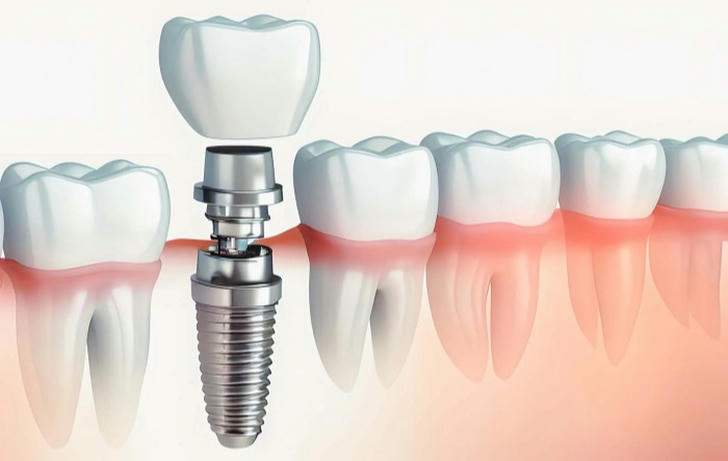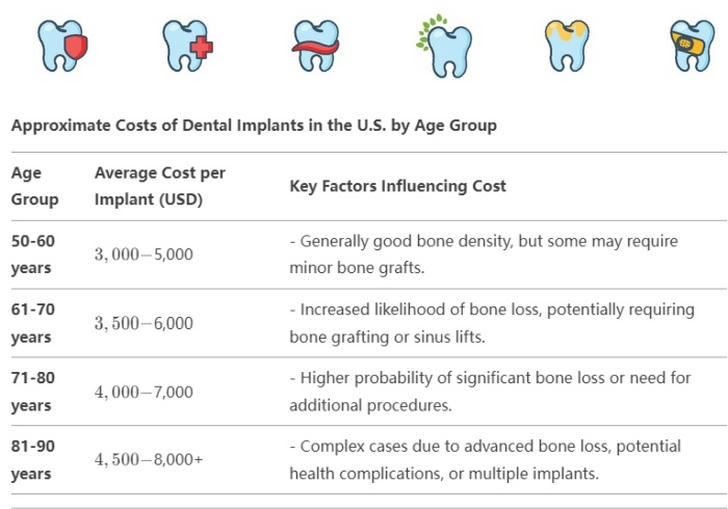The Truth Behind $399 Dental Implants
Dental implants are a highly effective solution for replacing missing or damaged teeth, offering a natural look and functionality. However, the process requires advanced technology, high-quality materials, and specialized expertise, which typically come at a significant cost. While the average price for a single dental implant in the U.S. ranges from 3,000 to3,000to5,000, some clinics advertise $399 dental implants. This raises questions about the quality, effectiveness, and potential hidden costs of such offers.

Are $399 Dental Implants a Myth?
At first glance, $399 for a dental implant may seem like an incredible deal. However, this price is often misleading. The dental implant procedure involves multiple parts, including implant posts, abutments, crowns, and other preparatory steps such as bone grafting, tooth extractions, or imaging (CT scans and X-rays). The national average cost for these components alone is over $1,500. $399 for a dental implant may seem like an incredible deal.
The $399 price tag is likely a marketing tactic to attract patients. It may only cover a small portion of the procedure, such as the crown, while excluding other essential costs. Patients who fall for these ads often end up paying far more than expected or receiving substandard care.
Risks of Low-Cost Dental Implants
1.Substandard Materials and Workmanship
High-quality dental implants are typically made from titanium or zirconium, materials known for their durability and biocompatibility. Titanium, in particular, fuses well with the jawbone, providing long-term stability. However, cheap implants may use inferior materials that are prone to corrosion, breakage, or poor integration with the jawbone.
Additionally, low-cost providers may lack the necessary expertise to perform the procedure correctly. Improper placement of implants can lead to complications such as infections, gum inflammation, or damage to adjacent teeth.
2.Hidden Costs and Complications
Patients who opt for $399 dental implants often face unexpected expenses. For example, if the implant fails or causes complications, additional treatments such as corrective surgery, antibiotics, or even replacement implants may be required. These costs can quickly add up, making the initial “bargain” far more expensive than a properly executed procedure.
Common complications associated with low-quality implants include peri-implantitis (gum inflammation and bone loss) and implant mucositis (swelling and bleeding of the gums). Treating these conditions can be both painful and costly.
3.Impact on Oral and Overall Health
Dental implants are not just about aesthetics; they play a crucial role in maintaining oral health. Missing teeth can lead to bone loss, shifting of adjacent teeth, and difficulties in chewing or speaking. While implants can address these issues, poorly executed procedures can exacerbate problems, causing long-term damage to your jawbone, gums, and surrounding teeth.
Financing Options for Dental Implants
While the cost of dental implants may seem daunting, there are several ways to make the procedure more affordable without compromising on quality:
1.Dental Loans and Healthcare Credit Cards
Many financial institutions offer personal loans specifically for medical and dental procedures. Healthcare credit cards like CareCredit also provide flexible payment plans with low or no interest if paid within a specific period.
2.In-House Payment Plans
Some dental practices offer in-house financing options, allowing patients to pay for their implants in installments. This can be a convenient and affordable way to manage the cost without relying on external lenders.
3.Flexible Spending Accounts (FSA) and Health Savings Accounts (HSA)
If your dental implant procedure is medically necessary, you may be able to use funds from an FSA or HSA to cover the cost. These accounts allow you to set aside pre-tax dollars for healthcare expenses, reducing your overall financial burden.
Why Investing in Quality Dental Implants is Worthwhile
1.Natural Appearance and Functionality
High-quality dental implants are designed to look, feel, and function like natural teeth. They are custom-made to match the color, shape, and size of your existing teeth, ensuring a seamless blend with your smile.
2.Long-Term Durability
Unlike dentures or bridges, which may need to be replaced every 5–10 years, dental implants can last a lifetime with proper care. This makes them a cost-effective solution in the long run.
3.Preservation of Jawbone and Facial Structure
Dental implants prevent bone loss by stimulating the jawbone, just like natural tooth roots. This helps maintain your facial structure and prevents the sunken appearance often associated with missing teeth.
4.Easy Maintenance
Dental implants require the same care as natural teeth—regular brushing, flossing, and dental check-ups. Unlike dentures, there’s no need for special cleaning solutions or adhesives.

Making an Informed Decision
While the allure of $399 dental implants may be tempting, it’s essential to prioritize quality and safety over cost. Cheap implants often come with hidden risks and expenses that can compromise your oral health and overall well-being. Instead, consider exploring financing options or consulting with reputable dental professionals who prioritize patient care and transparency.
Investing in high-quality dental implants is an investment in your health, confidence, and quality of life. By choosing a trusted provider, you can ensure a successful outcome and enjoy the benefits of a healthy, natural-looking smile for years to come.
